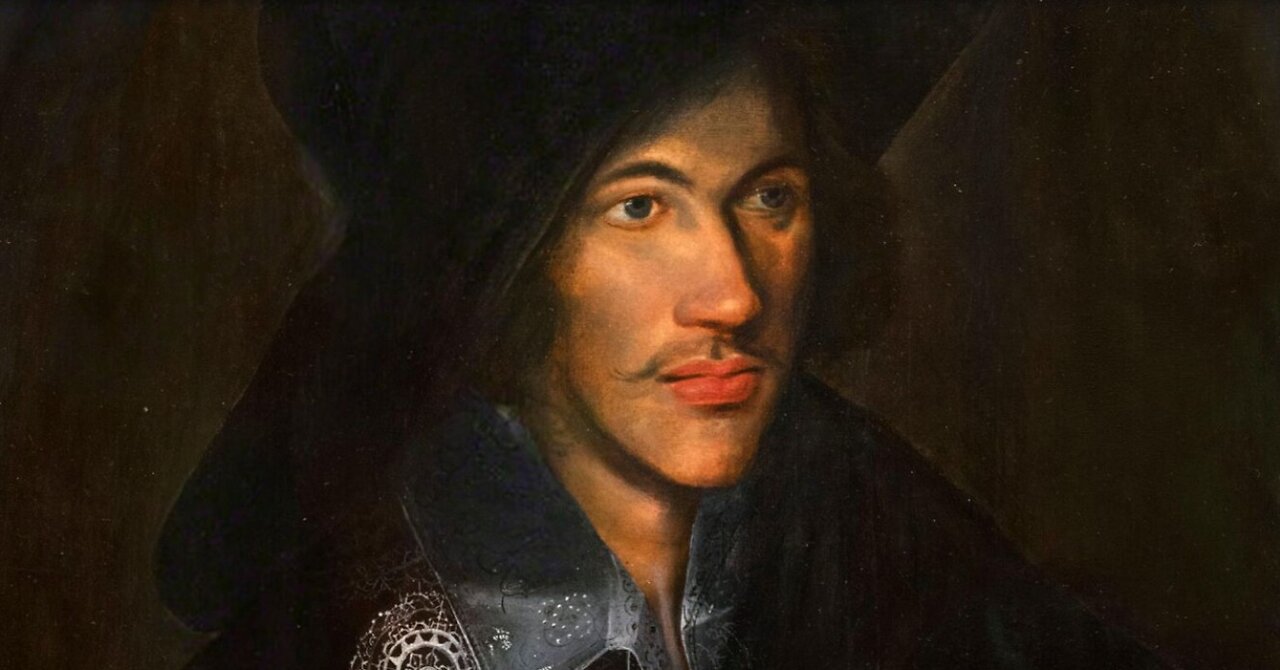Premium Only Content

"Hymn to God, My God, In My Sickness", by John Donne. Read by Liz Langerak. Music by Rachmaninoff.
This video was made using MAGIX Movie Edit Pro MX Plus.
The Latin phrase, "per fretum febris", in the 5th line of the secocnd stanza means, "by way of a fever" or, "because of a fever". This poem is in the public domain.
The music used in this video, that features the poem by John Donne, was composed by Sergei Rachmaninoff. This is the 2nd Movement, also known as the Adagio Sostenuto, of his Piano concerto no 2 in C minor, Opus 18. It is performed by the Royal Theater Orchestra in Turin, Italy. The orchestra is conducted by Gianandrea Noseda, and the piano solo is played by Khatia Buniatishvili.
John Donne (pronounced Dun) (1571 or 1572 – 31 March 1631) was an English poet, scholar, soldier and secretary born into a recusant family, who later became a cleric in the Church of England. Under royal patronage, he was made Dean of St Paul's Cathedral in London (1621–1631)
Donne was born in London in 1571 or 1572, into a recusant Roman Catholic family when practice of that religion was illegal in England. Donne was the third of six children. His father, also named John Donne, was married to Elizabeth Heywood. He was of Welsh descent and a warden of the Ironmongers Company in the City of London. He avoided unwelcome government attention out of fear of religious persecution.
His father died in 1576, when Donne was four years old, leaving his mother, Elizabeth, with the responsibility of raising the children alone. Heywood was also from a recusant Roman Catholic family, the daughter of John Heywood, the playwright, and sister of the Reverend Jasper Heywood, a Jesuit priest and translator. She was a great-niece of Thomas More. A few months after her husband died, Donne's mother married Dr. John Syminges, a wealthy widower with three children of his own.
Donne was educated privately. There is no evidence to support the popular claim that he was taught by Jesuits. In 1583, at the age of 11, he began studies at Hart Hall, now Hertford College, Oxford. After three years of studies there, Donne was admitted to the University of Cambridge, where he studied for another three years. Donne could not obtain a degree from either institution because of his Catholicism, since he refused to take the Oath of Supremacy required to graduate. In 1591 he was accepted as a student at the Thavies Inn legal school, one of the Inns of Chancery in London. On 6 May 1592, he was admitted to Lincoln's Inn, one of the Inns of Court.
In 1593, five years after the defeat of the Spanish Armada and during the intermittent Anglo-Spanish War (1585–1604), Queen Elizabeth issued the first English statute against sectarian dissent from the Church of England, titled "An Act for restraining Popish recusants". It defined "Popish recusants" as those "convicted for not repairing to some Church, Chapel, or usual place of Common Prayer to hear Divine Service there, but forbearing the same contrary to the tenor of the laws and statutes heretofore made and provided in that behalf". Donne's brother Henry was also a university student prior to his arrest in 1593 for harbouring a Catholic priest, William Harrington, and died in Newgate Prison of bubonic plague, leading Donne to begin questioning his Catholic faith.
For more information on John Donne, please see his Wikipedia page at https://en.wikipedia.org/wiki/John_Donne
-
 2:50:50
2:50:50
TimcastIRL
4 hours agoTrump Deploys National Guard To DC, Federalizes Police, Liberals Protests Take Over| Timcast IRL
184K58 -
 2:27:36
2:27:36
Barry Cunningham
7 hours agoBREAKING NEWS: PRESIDENT TRUMP ABSOLUTELY NUKED WASHINGTON D.C. AND THE MEDIA!
55.8K38 -
 LIVE
LIVE
Drew Hernandez
9 hours agoTRUMP'S DC TAKEOVER & ISRAEL KILLS AL JAZEERA TEAM AHEAD OF GAZA INVASION
673 watching -
 1:19:05
1:19:05
Glenn Greenwald
5 hours agoTrump's DC Takeover: Is it Legal? Israel Kills More Journalists, Including Anas al-Sharif; Glenn Reacts to Pete Buttigieg and JD Vance on Israel | SYSTEM UPDATE #501
116K105 -
 44:40
44:40
Katie Miller Pod
5 hours ago $2.98 earnedEpisode 1 - Vice President JD Vance | The Katie Miller Podcast
38.7K12 -
 13:09:34
13:09:34
LFA TV
1 day agoLFA TV ALL DAY STREAM - MONDAY 8/11/25
210K20 -
 1:44:36
1:44:36
RiftTV
7 hours agoBREAKING: Trump FEDERALIZES D.C. To RESTORE Law & Order | The Rift | Ryan Matta, Olivia Krolczyk + Braeden Sorbo
50.6K16 -
 3:00:47
3:00:47
megimu32
5 hours agoOTS: Breakfast Nostalgia + Blind Chocolate Cereal Showdown… LIVE! 🍫🥣
41K2 -
 3:36:47
3:36:47
LIVE WITH CHRIS'WORLD
12 hours agoLIVE WITH CHRIS’WORLD - It’s Called LAW & ORDER
34.3K4 -
 11:07
11:07
AlaskanBallistics
1 day ago $0.06 earnedBreek-Lok Quick Detach Hub Mount and Flash Hider System Review
28.5K5